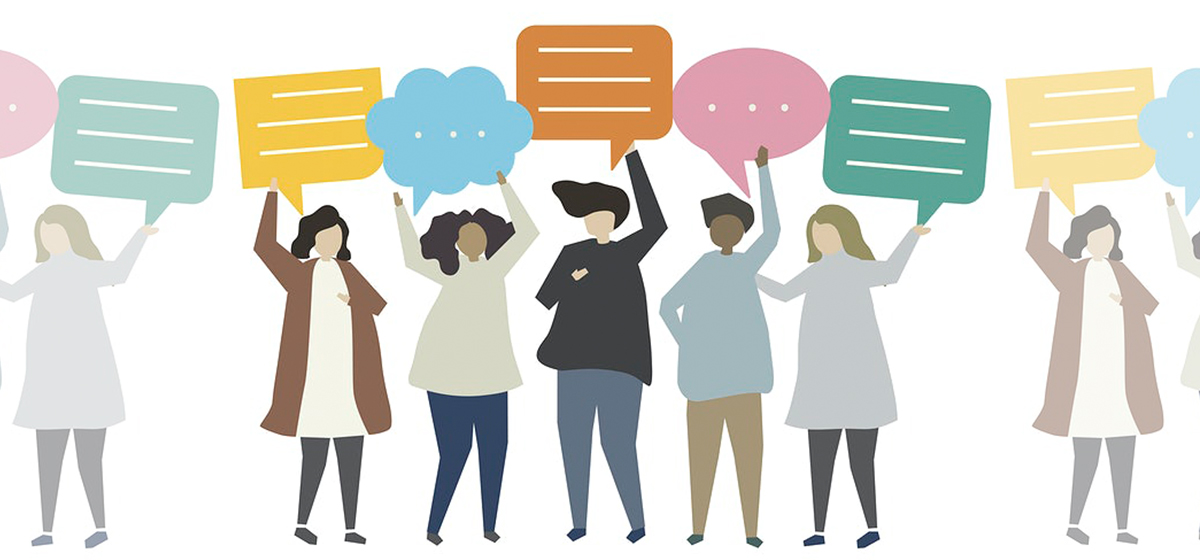Civility and the Algorithm

Polarity runs deep. Conversations are strained. Friendships are on edge.
Might free speech and professional journalism rescue civility?
It happened before. Human spirits were liberated when speech was freed. The town square became a metaphor for free speech.
Free speech principles were not easily adopted. Dissension threatened feudal order. Kings were not amused. More than a few of our free-thinking forebears were silenced at the guillotine.
Speech came to the town square to be tested. Some ideas prevailed. Others didn’t. Many were pummeled into obscurity. Good riddance. That’s the beauty of the First Amendment.
Free speech enabled free thought. When adopted, it represented an epic stride for shared ideas. Today speech is again sooner silenced than suffered.
Rather than defeat a bad idea in an open forum with more free speech, the unwelcome thought now encounters enforced silence. The millennium has not been kind to speech.
Silenced ideas do not vanish. They fester in caves. Internet algorithms safely shepherd fanatical ideas into echo chambers. Here, the like-minded find mutual support. Shared bias thrives in remote corners of the web. Unlike free speech in the town square, suppressed speech is no longer exposed and contradicted. It recruits disciples by stealth.
The framers of First Amendment free speech principles envisioned a marketplace of ideas. Today’s marketplace has morphed into something very different. Anyone now ascending a soapbox in the town square is unlikely to find an audience.
Our screens have replaced the town square. With every click we reveal another bit of ourselves to the algorithm. Click by incremental click, the algorithm ushers us deeper into a comfortable information bubble where we need not suffer the inconvenience of other ideas. Free speech is suffocated. Unsurprisingly, we grow divided and intolerant.
Divisions are not without precedent in America. Rancor ran high during the Civil War, the women’s suffrage movement, the civil rights movement, Vietnam, and Watergate. Even Prohibition drew a loyal opposition.
Principles of free speech mediated the adversity. The First Amendment lived up to its ideals.
Open debate in the town square was rigorous, time-consuming, and messy. Avoiding a contest was no option. The empty chair signaled defeat. Sunshine became the disinfectant. Our quest for truth was arbitrated by an informed public.
We always knew censorship had some flaws. Who would be the thought police? How would offending speech be silenced? Roman satirist Juvenal asked: “Quis custodiet ipsos custodies?” (Who watches the watchers?)
The First Amendment served us well because of the “Counterspeech Doctrine.” Justice Brandeis explained counterspeech in 1927: “If there be time to expose through discussion, the falsehoods and fallacies, to avert the evil by the processes of education, the remedy to be applied is more speech, not enforced silence.”
Decades ago, a few networks and newspapers served a broad audience by covering all sides of an issue under the Journalists’ Code of Ethics. Fair reporting was an ethical imperative.
Today, countless stations and websites ease us into echo chambers. We may expect to learn how the world functions, but the world no longer drops by. The town square has been chiseled by algorithms.
Can we relax the algorithms? Might they be detoxed? Can we create financial incentives to write algorithms with a sense of civic responsibility?
Don’t count on it.
Algorithms will not soon retreat. Internet titans such as Google, Facebook, and YouTube rely on advertising efficiency. It’s their business model. Robust algorithms enable advertisers to strike targeted audiences with laser precision. As they say, if it’s free online, you are not the customer, you are the product. We obediently fall in line, like fish in a barrel. Here, our preexisting notions are reinforced as imaginations are stifled.
Might we restore appreciation for shared human thought? For open debate? For the Counterspeech Doctrine? Can we break these chains?
Before solving a problem, we have to see it. Only when enough of us decide to reclaim this slice of humanity, will we collectively fashion a solution. For starters, let’s restore respect for the Journalists’ Code of Ethics in our deliberative democracy.
News provided under the Code of Ethics carried a price tag. We paid to stay informed. Today, as we resist that price, the U.S. Bureau of Labor Statistics reports over half of the news industry jobs have vanished in a recent 15-year interval.
Our “free” news exacts hefty a toll from imaginations trapped in a bubble. An even steeper penalty could be threatened when Internet giants themselves become the self-appointed arbiters of truth to censor speech on their platforms. “Quis custodiet ipsos custodies?”
Deep divisions, polarity, even an insurrection, become the cost for all that’s free online.
The price of news generated by journalism’s professional ethical standards pales by comparison.



